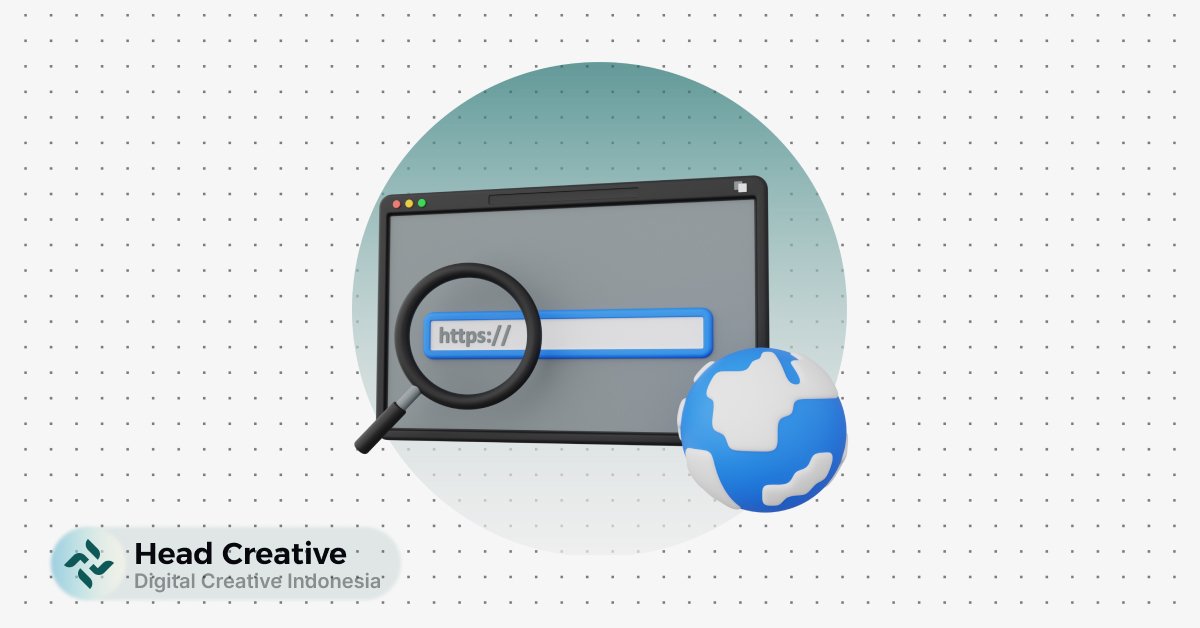Background
The rapid development of digital technology has transformed almost every aspect of our lives. Today, various online platforms are flourishing and significantly impacting how individuals learn, work, and interact. For the younger generation, these advancements open doors to a new era filled with both opportunities and challenges. This phenomenon also drives the emergence of the concept of digital generation intelligence, where an individual’s capability is not only measured by cognitive aspects but also by how well they utilize technology to grow and develop.
Some noticeable changes in daily life:
Transformation in Learning Methods
Many schools and universities have adopted e-learning or blended learning methods, leveraging digital platforms for educational activities.
Changes in Work Patterns
The younger generation is becoming accustomed to remote work systems and online collaboration through specialized applications and software.
Social Interaction in the Digital Realm
Social media and chat applications facilitate cross-regional, even cross-country communication, indirectly influencing the attitudes and mindsets of young generations.
Digital Generation Intelligence
Before delving further, let us first understand what digital generation intelligence means. This term refers to an individual’s ability, particularly among the younger generation, to:
- Utilize Technology: Effectively use digital devices and the internet for learning, working, and socializing.
- Think Critically in the Digital World: Filter and evaluate information received from various online sources to avoid hoaxes and manipulation.
- Innovate and Collaborate: Combine creativity with digital resources to produce new works or solutions while effectively working with others in the virtual space.
Simply put, digital generation intelligence is a blend of technical skills, social competence, and critical thinking ability, all of which are essential to competing in this highly connected era. These skills become increasingly important amidst the rapid flow of information and technological changes.
Also Read: Tips for Choosing a High-Quality and Reliable Website Development Service
The Role of Digitalization in Shaping the Intelligence of the Young Generation
The digital era has opened numerous opportunities for the younger generation to develop their digital intelligence. Digitalization not only facilitates access to information but also enables unprecedented global collaboration. Furthermore, the ability to filter and wisely utilize technology is a valuable asset for anyone aiming to excel in the modern world. Below are some key factors that make digitalization a primary driver of digital generation intelligence development.
- Ease of Access to Information
One of the main reasons why digital generation intelligence is rapidly evolving is the ease of accessing information. Thanks to the internet and various online platforms, young individuals can acquire data or knowledge from all over the world in just seconds.
Some concrete benefits of this ease of access include:
- Self-Learning: Young individuals can explore new topics from various sources, including educational websites, tutorial videos, and online discussion forums.
- Staying Updated: Trends and news develop quickly, allowing the digital generation to stay informed almost in real-time.
- Idea Discovery and Inspiration: Inspiration can come from anywhere, including blogs, social media, or video-sharing platforms, fostering creativity and innovation.
With such vast access to information, digital generation intelligence can develop more rapidly. However, unchecked access without discernment and responsibility may lead to issues like misinformation and reliance on untrustworthy sources.
- Enhancing Creativity and Collaboration
Digitalization is not just about seeking information; it also facilitates the creation of new works and cross-border collaboration. The younger generation can now easily work together despite being in different locations and develop innovative ideas with the help of digital tools.
- Utilizing Digital Platforms for Group Projects
Platforms like Google Docs, Trello, and Slack allow teams to coordinate in real time. - Online Discussions and Workshops
Webinars, discussion forums, and online classes serve as effective platforms for young individuals to exchange ideas and participate in joint projects. - Unlimited Innovation
Graphic design applications, game development software, and video content creation platforms enable anyone to express their creativity while sharpening their digital intelligence.
All these opportunities reinforce the role of digitalization as a key driver of young people’s skill advancement. Digital technology is no longer merely for entertainment but has become a “workspace” that enables individuals to collaborate and produce outstanding creations.
- Digital Literacy and Its Influence
While access to information and collaboration opportunities are widely available, it is crucial for the younger generation to have strong digital literacy. Digital literacy includes the ability to:
- Filter Information: Assess the credibility of sources, differentiate between facts and opinions, and understand the context of information.
- Think Critically: Analyze various perspectives found online and make objective conclusions.
- Use Technology Wisely: Understand online ethics, including privacy, data security, and appropriate digital communication.
These three points form the foundation of solid digital generation intelligence. Without the ability to filter information and think critically, young individuals are susceptible to hoaxes and negative content. Additionally, a lack of understanding of online ethics may lead to conflicts, data misuse, or even cyberbullying.
Quick Tips:
- Use different search engines (e.g., Google, Bing, or DuckDuckGo) to verify news sources.
- Compare information from at least 2–3 trusted sites for broader perspectives.
- Use ad blockers or security extensions to minimize exposure to harmful content.
With adequate digital literacy, young individuals will not only be proficient in using technology but also wise in making data- and information-based decisions. This aligns with the holistic development of digital generation intelligence, which integrates technical knowledge, emotional skills, and moral principles.
Challenges and Risks for the Digital Generation
While rapid technological advancements offer various conveniences, we cannot ignore the challenges and risks that arise. For young individuals developing their digital generation intelligence, these challenges can have negative effects if not managed properly. Below are three major challenges to consider.
- Technology Addiction
One of the most prominent risks in the digital era is the potential addiction to devices and technology services. Excessive gadget use not only affects mental health but also physical conditions. Some common impacts include:
- Mental Health Issues: Anxiety, depression, or feelings of isolation due to excessive screen time.
- Decreased Productivity: Difficulty concentrating on specific tasks due to constant distractions from notifications or social media.
- Sleep Problems: Trouble sleeping caused by blue light exposure from screens at night.
To ensure digital generation intelligence is not eroded by bad habits, young individuals must implement good time management and maintain awareness of balancing online and offline life.
- Exposure to Negative Content
Another challenge frequently encountered by young individuals is the ease of accessing negative content. Without sufficient media literacy, teenagers may be exposed to:
- Hoaxes or Misinformation: Fake news and rumors spread rapidly through social media, causing panic or misunderstandings.
- Cyberbullying: Online harassment that can severely impact victims’ self-confidence and mental health.
- Inappropriate Content: Violent, pornographic, or hate speech content that may affect moral development.
This is where digital literacy plays a crucial role. With proper understanding, young individuals can filter information sources and avoid negative content traps, strengthening their digital generation intelligence by maintaining positive values in the vast digital ecosystem.
- Access Disparity
Not everyone has equal access to technology. Infrastructure limitations, economic conditions, and lack of government support can hinder digital generation intelligence development in various regions. Some real obstacles include:
- Slow or Unstable Internet Connection: Limits access to online learning and collaboration.
- Lack of Technological Facilities: Inadequate devices such as laptops, tablets, or smartphones hinder learning processes.
- High Costs: Internet data and technological devices can be a financial burden for low-income families.
Due to these access disparities, the potential and creativity of young individuals may not develop optimally.
Also Utilize Our Services: Digital Marketing Services
Strategies to Enhance Digital Generation Intelligence
In today’s digital era, preparing the younger generation to possess digital intelligence is a necessity. This strategy is not only about mastering technology but also includes character development, thinking skills, and the ability to collaborate. Here are three key steps that can be taken to comprehensively enhance digital generation intelligence.
- Technology-Based Education
One of the most crucial pillars in building digital generation intelligence is integrating technology into the education system. The role of schools and educational institutions is vital as they provide a learning ecosystem that combines theory with hands-on practice.
Integration of Digital Curriculum
A curriculum tailored to 21st-century needs should include subjects on basic programming, digital literacy, and the positive use of social media.
Utilization of Learning Devices and Applications
By using e-learning platforms, students not only grasp academic materials but also train themselves in searching, evaluating, and presenting information online.
Industry Engagement
Collaboration between schools and tech companies can open internship or practical training pathways, allowing students to gain real-world experience and understand technology applications in the field.
Through a technology-based education approach, young generations will be better prepared to face various challenges while significantly enhancing digital generation intelligence.
- Collaboration Between Parents and Teachers
Formal education alone is insufficient without active involvement from parents and teachers in guiding the younger generation. This collaboration aims to foster healthy digital habits while ensuring proper supervision of the content consumed by children.
Building Healthy Digital Habits
Parents and teachers need to set screen time limits, monitor online activities, and serve as positive examples in using technology productively.
Content Supervision and Guidance
Ensure that children understand the difference between beneficial and potentially harmful content. Guide them to wisely filter information and avoid exposure to dangerous content.
Digital Literacy Education
Engage in discussions and interactive activities on digital security, communication ethics, and privacy protection. This way, children become more aware and disciplined in using technology.
When parents and teachers work together, the development of digital generation intelligence will proceed harmoniously—children will not only master technology but also uphold responsibility and ethics in utilizing it.
- Soft Skills Development
Soft skills are a crucial foundation in building digital generation intelligence. In this fast-changing era, skills such as critical thinking, creativity, communication, and collaboration are key to future success.
Critical Thinking
Encouraging students to always question the validity of information and verify it from multiple sources. Being critical of data and facts will help them avoid hoaxes.
Creativity
By utilizing digital platforms, young generations can express their unique ideas in various forms, such as graphic design, videos, or mobile applications.
Communication and Collaboration Skills
Technology facilitates cross-regional and even cross-country collaborations. Enhancing communication skills enables young individuals to lead projects, present ideas, and build broader professional relationships.
Improving soft skills strengthens digital generation intelligence, making them more adaptive, innovative, and competitive on a global scale.
Conclusion
In discussing digital generation intelligence, we have explored various aspects of digitalization affecting the younger generation’s development, from ease of access to information, creative and collaborative potential, to challenges such as technology addiction and access disparity. On one hand, digitalization opens the door to nearly limitless opportunities for young people to learn and innovate. On the other hand, without digital literacy and proper supervision, technology can also bring harmful consequences.
Through technology-based education, collaboration between parents and teachers, and a focus on soft skills development, digital generation intelligence can be effectively achieved. The younger generation must be equipped not only with technical skills but also with critical, creative, communicative, and collaborative attitudes to compete in the modern era.
Now is the time to implement the tips and strategies we have discussed:
- Optimize Digital Learning
Explore and utilize credible e-learning platforms or educational applications to continuously enhance knowledge for yourself and those around you. - Set Healthy Boundaries
Whether as a parent, teacher, or student, apply time management for device usage and implement supervision to minimize exposure to negative content. - Develop Soft Skills
Practice critical thinking, creativity, communication, and collaboration skills in every digital activity.
If you wish to explore further ways to enhance digital generation intelligence, visit our related blog articles. Use the above steps as a practical guide to making the most of the digital era while strengthening your and your family’s competitiveness in the future. Good luck!


